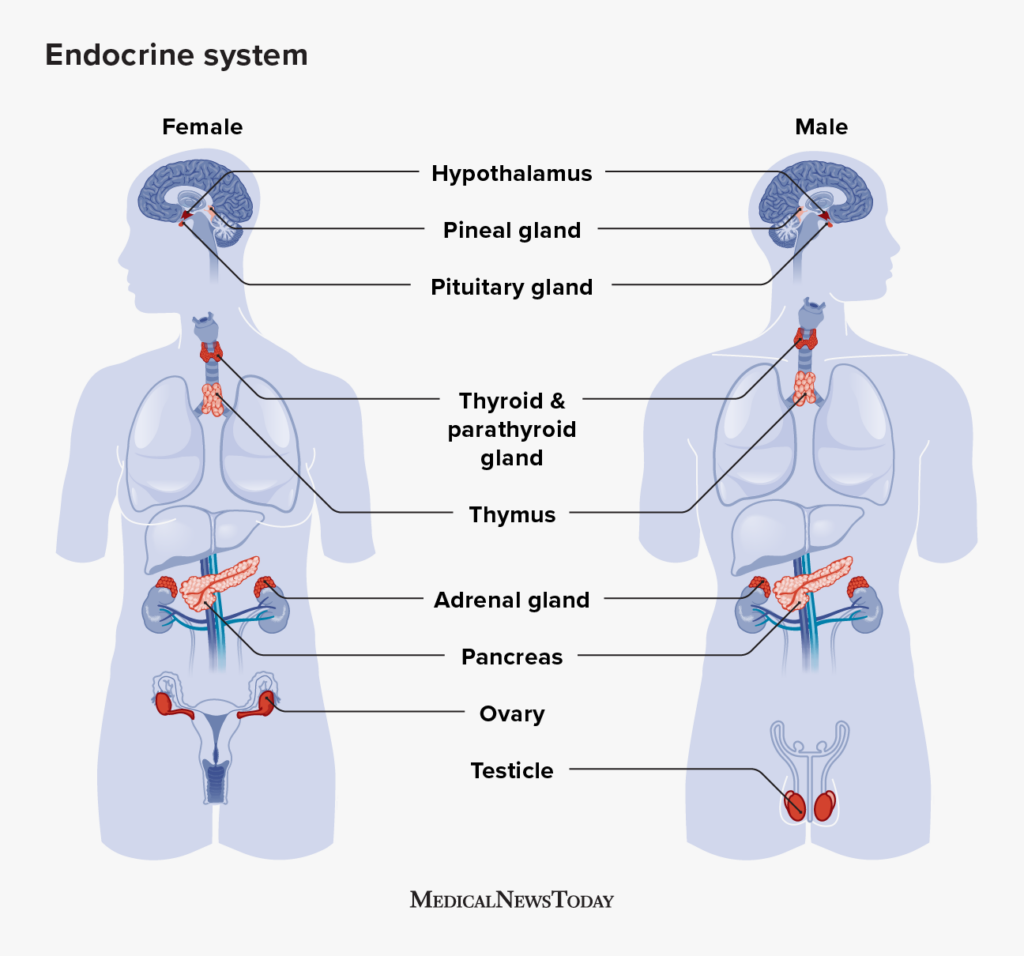Best Endocrinologist in Texas: Identified Know-how in Hormone Medication
Wiki Article
Navigating the Intricacies of Thyroid Disorders With an Endocrinologist
In this short article, we will explore the relevance of seeking expert assistance from an endocrinologist when dealing with thyroid problems. We will certainly dive right into the understanding of various thyroid conditions, the significance of precise medical diagnosis, and the available treatment choices. In addition, we will talk about the continuous monitoring and assistance required for people with thyroid disorders.Comprehending Thyroid Problems
Thyroid problems can be much better comprehended with assistance from an endocrinologist. Hypothyroidism, for example, happens when the thyroid does not generate enough hormones, resulting in signs such as fatigue, weight gain, and anxiety.Understanding thyroid disorders calls for a thorough exam of a person's clinical history, physical assessment, and lab tests. Endocrinologists specialize in the diagnosis and therapy of hormone disorders, including thyroid problems.
In addition, endocrinologists know with the newest developments in thyroid research, which allows them to supply the most current and reliable therapy techniques. Endocrinologist in georgetown. They can suggest medication to manage hormone degrees, suggest lifestyle alterations, and offer advice on handling symptoms. In even more complex situations, they may work together with various other experts to ensure detailed care

Importance of an Endocrinologist
An endocrinologist plays an essential duty in the medical diagnosis and management of thyroid disorders, supplying specific knowledge and knowledge in hormone conditions. With their extensive training in the endocrine system, these doctor are uniquely certified to evaluate and deal with thyroid conditions.Among the crucial reasons why an endocrinologist is essential in the administration of thyroid problems is their capability to properly identify the problem. Thyroid conditions can be intricate, with signs that might overlap with other clinical conditions. An endocrinologist has the experience to carry out a thorough examination, including an in-depth clinical background, physical exam, and specialized tests to properly diagnose the particular thyroid problem.
Additionally, an endocrinologist is outfitted to develop a tailored therapy strategy for each individual client. They take right into account elements such as the type and extent of the thyroid disorder, the client's total wellness, and their preferences. This customized strategy ensures that the treatment plan is enhanced for the individual's details needs, leading to much better end results.
Along with medical diagnosis and treatment, an endocrinologist also plays an important function in lasting monitoring of thyroid problems. They monitor the patient's thyroid hormone levels, adjust medication dosages if needed, and provide ongoing support and education to help clients successfully handle their problem.
Detecting Thyroid Problems
The endocrinologist's expertise includes accurately diagnosing thyroid problems via a thorough analysis, consisting of a thorough case history, health examination, and specialized tests (Endocrinology). This technique enables the endocrinologist to gather crucial details regarding the client's symptoms, clinical background, and family background, which can supply important insights right into the prospective root causes of the thyroid conditionDuring the physical exam, the endocrinologist will meticulously examine the individual's neck for any indicators of swelling or irregularity in the thyroid gland. They may additionally inspect for other physical indications, such as changes in hair appearance, skin dryness, or sticking out eyes, which can be a sign of thyroid problems.
Along with the case history and physical exam, the endocrinologist might get specialized examinations to more evaluate the function of the thyroid gland. These examinations might include blood tests to determine the degrees of thyroid hormonal agents, thyroid-stimulating hormone (TSH), and antibodies that may be connected with autoimmune thyroid problems. Imaging tests, such as ultrasound or nuclear medicine scans, may likewise be executed to assess the size, shape, and structure of the thyroid gland.
Therapy Alternatives and Monitoring
There are numerous therapy alternatives readily available for taking care of thyroid problems. The choice of treatment depends upon the certain kind and extent of the thyroid disorder, as well as individual client elements. In situations of hypothyroidism, where the thyroid gland does not create sufficient thyroid hormonal agents, one of the most typical therapy is hormonal agent replacement therapy. This includes taking synthetic thyroid hormones, typically in the type of an everyday tablet. The dose of the hormone replacement medication is very carefully kept an eye on and changed by an endocrinologist to click for more info make sure optimum thyroid hormonal agent levels in the body.For hyperthyroidism, where the thyroid gland creates excessive quantities of thyroid hormones, therapy options consist of medications, contaminated iodine treatment, or surgery. Drugs, such as beta blockers, can be suggested to more information manage signs and decrease the manufacturing of thyroid hormones.
Along with these standard therapies, there are also alternative therapies that some individuals might take into consideration, such as herbal supplements, acupuncture, or nutritional changes. It is essential to keep in mind that these alternative treatments must be discussed with an endocrinologist to ensure they are risk-free and reliable.
Long-Term Treatment and Assistance
Long-lasting treatment and assistance for people with thyroid disorders involves continuous tracking and tailored treatment plans supplied by an endocrinologist. After a first medical diagnosis and therapy, it is important for individuals to proceed obtaining normal follow-up like ensure that their thyroid function remains stable and that any potential problems are determined and attended to immediately.
Normal surveillance of thyroid hormonal agent degrees through blood examinations permits the endocrinologist to analyze the efficiency of the treatment plan and make any type of required modifications. This close tracking likewise allows the early detection of any type of modifications in thyroid function and the identification of possible regressions or difficulties, such as the development of nodules or the progression of thyroid cancer. Depending on the specific demands of the person, surveillance might happen every few months or on a yearly basis.

Conclusion
With their understanding and experience, endocrinologists can provide lasting treatment and assistance to individuals with thyroid conditions. By looking for the assistance of an endocrinologist, patients can get the essential care and monitoring to successfully navigate their thyroid disorder. Texas endocrinology.
Report this wiki page